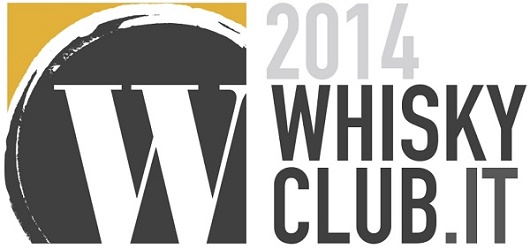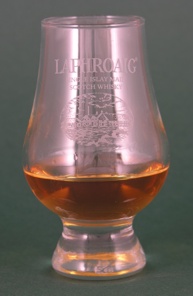|
|
The English translation should be soon online. Click here for the Google automatic translation

Will it be necessary a Presidium to protect Scotch Whisky? /1
Written by Claudio on 11/10/2009The world of the Scotch Whisky – although there’s a world wide recession – is going through a magical moment. But not everything’s perfect. Family managed distilleries are now an exception, while big multinational companies rule over the market. And impose the rules.
Through this article I intend to open a new discussion that is very important to me. As I have already written, to many persons –including me- the fascination of the Scotch Whisky lays in its strong connection with the Scottish tradition and culture. A similar distillate, produced industrially and in a nation without such strong heritage, wouldn’t have had the same success.
But let’s stop a second and have a look at our updated list of the owners of the distilleries. From this list it is easy to see how “independent” distilleries – or even those which belong to Scottish groups or families- are truly few and little, a marginal piece of the market. It also emerges DIAGEO’s dominant position, followed by PERNOD-RICARD. Two beverage multinational companies in which Scotch Whisky is not the core-business but just one of the many activities. And together they control the 60% of Scotch Whisky’s market.
The Scotch Whisky Association (SWA) – to which adhere nearly all the distilleries of Scotch Whisky- supports, protects and represents the interests of the industry of whisky in Scotland and in the rest of the world. It is a duty of the SWA to stop all matters about the definition of Scotch Whisky. As in every association of category, members are represented by a market share. The consequence is the union of DIAGEO and PERNOD-RICARD, which are able to impose their will on every single decision. And the point of view of two big multinational companies doesn’t always agree with little traditional producers’ one. This is a theoretical point of view.
The charisma of the Scotch Whisky has actually managed to control all the strong interests of a part till now. The SWA even recently (2007-2008) was busy in redefining the various typologies of Scotch Whisky and – after many discussions- the result was for many people (and also me) more than acceptable.
So where’s the problem? Why should a simple reclassification of the term Scotch Whisky be so troublesome? Reality faces two different theses. The one of the little producers, who want a more Scottish identity of the Scotch Whisky. Today the only bond to Scotch production is that it has to be distilled and matured on Scottish land. Actually it is perfectly legal to use barley and peat that come from every corner of the world, water that doesn’t flow from a Scottish source and a non-native yeast (those are the three principal ingredients required to produce Whisky). It is possible to bottle outside Scottish borders, maybe using non Scottish water to cut the New Make Spirit at the alcoholic content required.
Then there’s also a problem about the characteristics of the production areas (Islay, Highland, Speyside, etc.), the terroir. Today the production area vouches that a Scotch was distilled in that area. Maturation can happen in every other part of Scotland. So we can have a distillery like Caol Ila which distils on Islay, brands its own product as Islay Single Malt Scotch Whisky but actually just few casks mature in that area. Most of its New Make Spirit is put in a tanker, by ferry and highway reaches its destination near Glasgow, where it is transferred in casks and left there to mature in huge air-conditioned warehouses. In the entire process the New Make Spirit stays just few days on Islay and the rest of its life (years) in an “artificial” warehouse on the continent. Is this what we are used to call a terroir? Of course not. Small distilleries would like to label a whisky with the name of the area just when it is possible to certificate the origin of each ingredient (water, barley, yeast), of distillation and maturation.
But my memory goes back to the history of an excellent Italian DOP cheese. The Bitto is a famous hill-country cheese initially produced in Val Gerola (a valley which crosses Valtellina, south to Morbegno). Little by little the production area has been extended to the entire Valtellina. To the producers of the Val Gerola, who became a minority, was reserved the right to call their own cheese Bitto of the Vallies of Bitto. But two years ago the basis of an incurable break were created. The Bitto consortium had surprisingly approved the possibility to use fodder and starter in hill-country to assist to the alimentation of the animals and the production of the cheese. This fact would have brought to the debasement of Bitto cheese and the destruction of the precious ecosystem of the alpine graze. The historical producers of the Val Gerola, not intending to accept any compromise, decided to leave the consortium. As a result, they were not allowed to call their cheese Bitto! The recourse at Italian and European level is still in progress, and it is so intense to create panic about the definition of DOP.
At this point it is licit to ask if the story’s going to repeat itself with the Scotch Whisky. Will it be necessary to create a Presidium to protect the Scotch Whisky?
What is a Slow Food Presidium?
The principal project of Slow Food Foundation, under an economic and organizational point of view, are Presidia.Presidia support excellent little traditional productions, save native races from extinction and ancient varieties of fruit and vegetables. Protections involve producers directly, offer assistance to improve products’ quality, ease trade between different countries and search for new market outlet (local and international). More than 300 all over the world, Presidia were established to protect little producers and to save quality handicraft products, from the Tibetan milkmen who produce yak milk cheese 4500 meters high to nomad fishermen of Banc d’Arguin in Mauritania.
Servirà un Presidio per difendere lo Scotch Whisky? /1
Servirà un Presidio per difendere lo Scotch Whisky? /2
Servirà un Presidio per difendere lo Scotch Whisky? /3
Servirà un Presidio per difendere lo Scotch Whisky? /4
Servirà un Presidio per difendere lo Scotch Whisky? /5
Servirà un Presidio per difendere lo Scotch Whisky? /6
Servirà un Presidio per difendere lo Scotch Whisky? /7
Servirà un Presidio per difendere lo Scotch Whisky? /8
Ti sfidiamo!
La parola Laphroaig è ripetuta in questo sito per alcune centinaia di volte.
Trova un punto in cui è scritta in modo errato, segnalacelo, e riceverai una mignon di Laphroaig 10yo in omaggio!
EVENTS |
WhiskyClub Italia si PresentaMontorfano Como, 8/11/2014Dopo l’anteprima primaverile allo Spirit of Scotland di Roma, entrano nel vivo le attività di WhiskyClub Italia. Leggi tutto... |
| Gli altri appuntamenti. |
HIGHLIGHTS |
WhiskyClub ItaliaScritto da Claudio Riva il 18/10/2014
Leggi tutto... |
